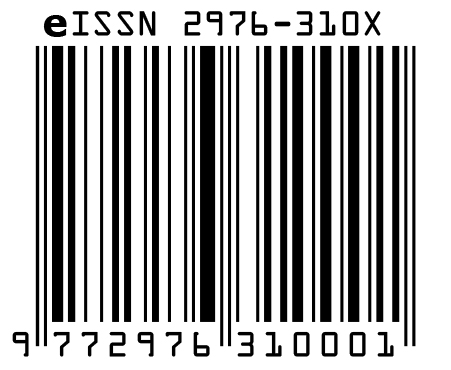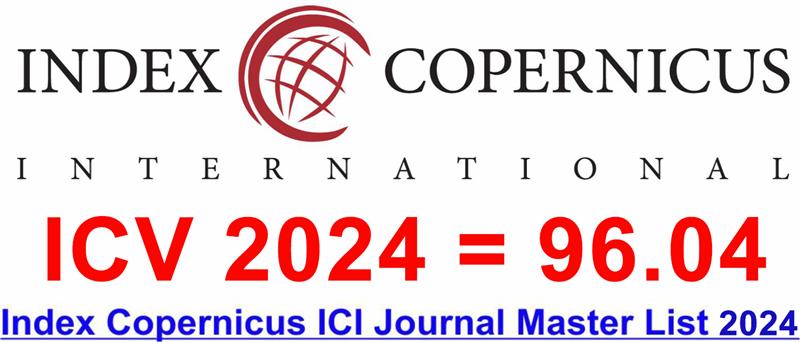Impact of Social Media on Science Teacher’s Effectiveness in Secondary Schools in Cross River State
DOI:
https://doi.org/10.60072/ijeissah.2023.v2i01.010Abstract
Background: This study investigated the impact of social media, a component of cloud computing, on science teachers’ effectiveness in secondary schools in Cross River State. Three (3) research questions and three (3) alternative hypotheses guided the study. Methods: A descriptive survey design was adopted for the study. The population of the study comprised 1209 science teachers in public secondary schools in Cross River State. A sample of 487 teachers was drawn from the population using stratified random sampling techniques. The researcher-made structured questionnaire with 18 items was used for data collection for the study. Research question one was answered using the Pearson Product Moment Correlation, while research questions two and three and the hypotheses were answered using the Analysis of Variance (ANOVA) statistics in the Statistical Package for Social Sciences (SPSS) at a 0.05 level of significance. Results: The results of the study revealed that there is a positive correlation between the utilization of social media in teaching and teaching effectiveness among science teachers in secondary schools in Cross River State; there is a negative correlation between gender and utilization of social media among science teachers in secondary schools in Cross River State; and there is a significant correlation between teaching experience and the utilization of social media among science teachers in secondary schools in Cross River State. Conclusion: The study justifies the effectiveness of the Cross River State government policy of introducing cloud computing into the education sector. The study recommends that the policy should be sustained.
Keywords:
Cloud Computing, Social Media, Science Teachers, EffectivenessReferences
Abdulkarim, S., & Shehu, A. U. (2022). The Advancement of Social Media and Cloud Computing. OIRT Journal of Scientific Research, 2(2), 9-10. https://doi.org/10.53944/ojsr-2212
Abraham, O., & Fanny, A. (2019). Social Media in Teaching-Learning Process: Investigation of the Use of Whatsapp in Teaching and Learning in University of Port Harcourt. European Scientific Journal ESJ, 15(4). https://doi.org/10.19044/esj.2019.v15n4p15
Ahmad, S. A. (2019). Social media and students’ academic performance in Nigeria. Asian Journal of Education and e-Learning (ISSN: 2321–2454), 7(1), 27-36. (doi NT FOUND)
Akpanobong, E. U., & Frank, P. A. (2018). “Cloud Technology: A Catalyst for Effective Entrepreneurship Education in Nigeria.” Nigerian Journal of Business Education (NIGJBED), 4(1), 57-68. http://www.nigjbed.com.ng/index.php/nigjbed/article/view/103 (doi NT FOUND)
Alkaabi, S. A., Albion, P., & Redmond, P. (2017). Social Network Misuse in the Classroom and Its Impact on Male Student Motivation in UAE Tertiary Education. IAFOR Journal of Education, 5(SI). https://doi.org/10.22492/ije.5.si.05
Alnjadat, R., Hmaidi, M. M., Samha, T. E., Kilani, M. M., & Hasswan, A. M. (2019). Gender variations in social media usage and academic performance among the students of University of Sharjah. Journal of Taibah University Medical Sciences, 14(4), 390–394. https://doi.org/10.1016/J.JTUMED.2019.05.002
Asemah, E. S., Okpanachi, R. A., & Edegoh, L. O. (2013). Influence of Social Media on the Academic Performance of the Undergraduate Students of Kogi State University, Anyigba, Nigeria. Research on Humanities and Social Sciences Vol, 3. (12), 90–97.
Blaisdell, R. (2015). Cloud computing in social networks - Rick’s Cloud. https://rickscloud.com/cloud-computing-in-social-networks/ (its an website)
Chawinga, W. D. (2017). Taking social media to a university classroom: teaching and learning using Twitter and blogs. International Journal of Educational Technology in Higher Education, 14(1), 1-19.
Ebohon, O., Obienu, A. C., Irabor, F., Amadin, F. I., & Omoregie, E. S. (2021). Evaluating the impact of COVID ‑ 19 pandemic lockdown on education in Nigeria: Insights from teachers and students on virtual / online learning. Bulletin of the National Research Centre, 45(1), 1-11. https://doi.org/10.1186/s42269-021-00538-6
Edu, D. O., & Edu, G. O. (2013). Attitude and experience as influencing variables of teachers’ perception of difficult concepts in primary science in Ikom educational zone, Cross River State, Nigeria: The need for curriculum review. International Education Research, 1(1), 60-68.
Ekuri, E. E. (2012). An evaluation of the science education component of the Cross River State Science and Technical Education Project. Research in Education, 88(1), 99-101. https://doi.org/10.7227/RIE.88.1.9
Etim, P., Upula, B., & Ekpo, U. (2016). the Use of Cloud Computing Tools and Teachers Effectiveness in the Teaching of English Language in Cross River Tertiary Institutions. Equatorial Journal of Education and Curriculum Studies, 1(2), 30–40. http://erjournals.com/erj2016010117.pdf
Greenhow, C., & Lewin, C. (2021). Online and blended learning: Contexts and conditions for education in an emergency. British Journal of Educational Technology, 52(4), 1301-1305.
Habes, M., Alghizzawi, M., Khalaf, R., Salloum, S. A., & Ghani, M. A. (2018). The Relationship between Social Media and Academic Performance: Facebook Perspective. International Journal of Information Technology and Language Studies, 2(1), 12–18. https://journals.sfu.ca/ijitls/index.php/ijitls/article/view/18
Haşiloğlu, M. A., Çalhan, H. S., & Ustaoğlu, M. E. (2020). Determining the views of the secondary school science teachers about the use of social media in education. Journal of Science Education and Technology, 29, 346-354. https://doi.org/10.1007/s10956-020-09820-0
Hassan, M. I. A., & Kommers, P. (2018). A Review on Effect of Social Media on Education in Sudan. International Journal of Educational Technology and Learning, 3(1), 30–34. https://doi.org/10.20448/2003.31.30.34
Iji, C. O., Abah, J. A., & Anyor, J. W. (2017). Impact of cloud services on students’ attitude towards mathematics education in public universities in Benue state, Nigeria. International Journal of Research in Education and Science, 3(1), 228–244.
Jayampathy, A., Mohammed, L. A., & Antony Anmary, S. (2023). The Challenges Confronted by the Asian English as Second Language Teachers on Implementation of E-Learning During Covid-19 Pandemic. International Journal of Emerging Issues in Social Science, Arts and Humanities (IJEISSAH), 1(2), 01-20. https://doi.org/10.60072/ijeissah.2023.v1i02.001
Muscanell, N. L., & Guadagno, R. E. (2012). Make new friends or keep the old: Gender and personality differences in social networking use. Computers in Human Behavior, 28(1), 107-112.
Machii, J. K. (2016). C. Science, and MBA Mis,“Assessment of Cloud Computing Adoption for E-Learning by Institutions of Higher Learning in Nairobi County, Kenya,”. Int. J. Sci. Res. Innov. Technol. ISSN, 3(2), 9-20.
Misra, S., & Adewumi, A. (2015). An analysis of the suitability of cloud computing services in the Nigerian Education Landscape. In 2015 International Conference on Computing, Communication and Security (ICCCS) 1–4. https://doi.org/10.1109/cccs.2015.7374203
Nta, H. H. (2015). Quality Practical Teaching New Perspective: A Panacea for Science Education in Cross River State, Nigeria " In Conference Proceedings. New Perspectives in Science Education 2015. 2015.
Odia, L. O., & Omofonmwan, S. I. (2007). Educational System in Nigeria Problems and Prospects. Journal of Social Sciences, 14(1), 86–85. https://doi.org/10.1080/09718923.2007.11978347
Ogbonnaya, U. (2019). Adoption and perceived usefulness of social media by pre-service teachers in Nigeria. International Journal of Interactive Mobile Technologies, 13(6), 52–67. https://doi.org/10.3991/ijim.v13i06.10299
Ratna, A. ., Ali Mohammed, L., Kirpalani, A. ., Hiranandani, K. ., Tolani, L. ., & Nandi, S. . (2023). Impacts of Gamification Learning Approach on Student’s Performance and Perception During Covid 19 Post Pandemic 2021 In Indonesia New Normal Learning Setting. Journal Research of Social Science, Economics, and Management, 2(7), 1392 –. https://doi.org/10.59141/jrssem.v2i07.384
Souley, B., & Aniobi, D. E. (2014). A Framework for Mobile Education System for Higher Institutions in Nigeria. Journal of Software Engineering and Applications, 7(10), 791–816. https://doi.org/10.4236/jsea.2014.710073
























